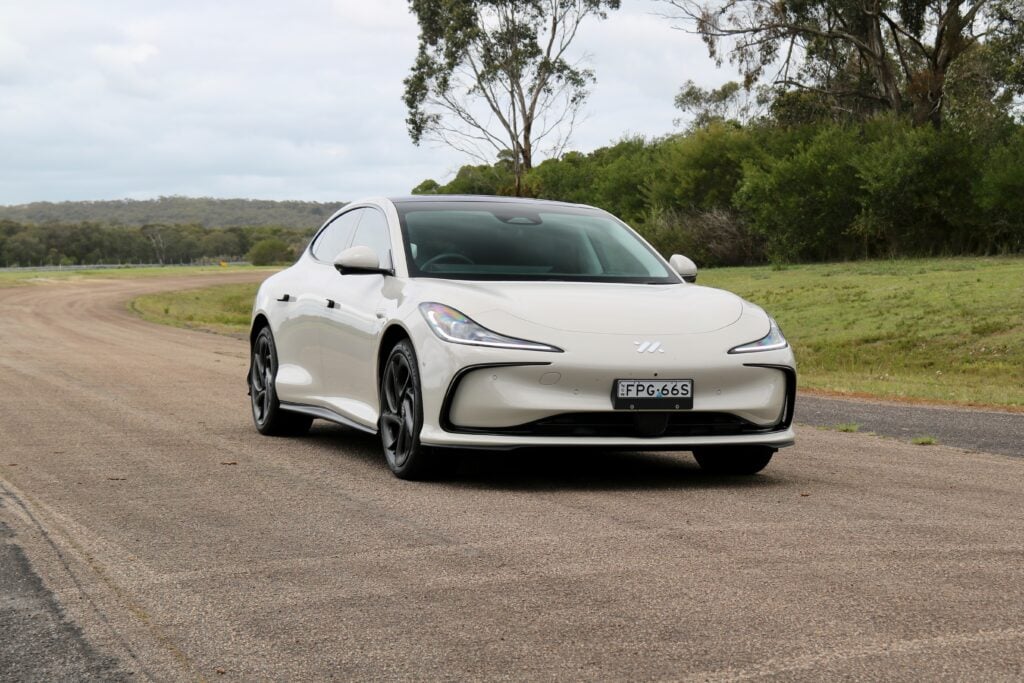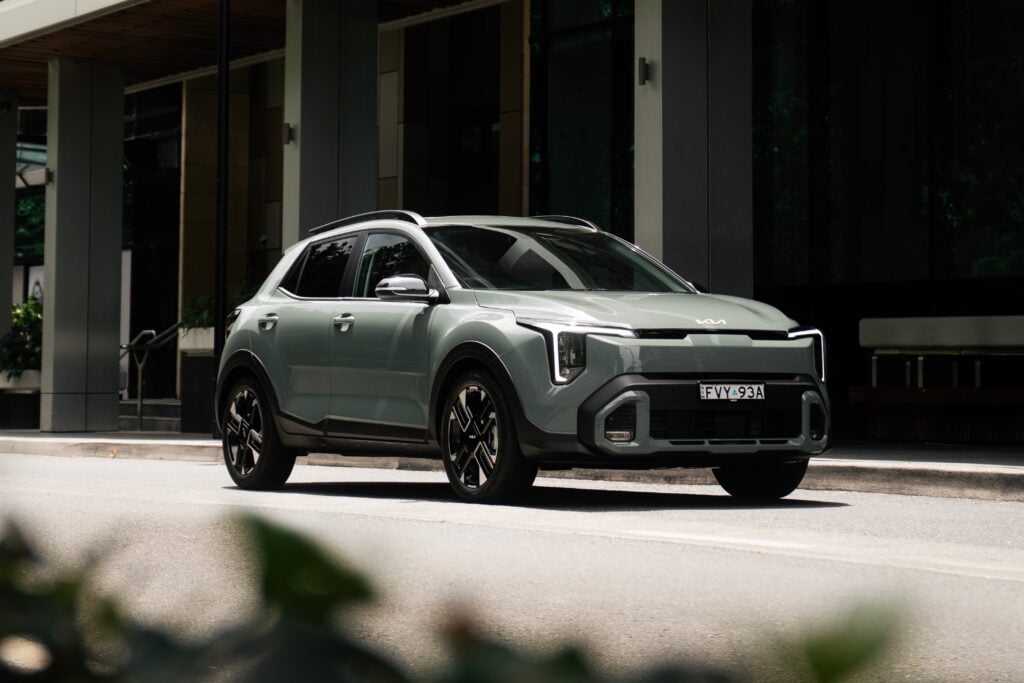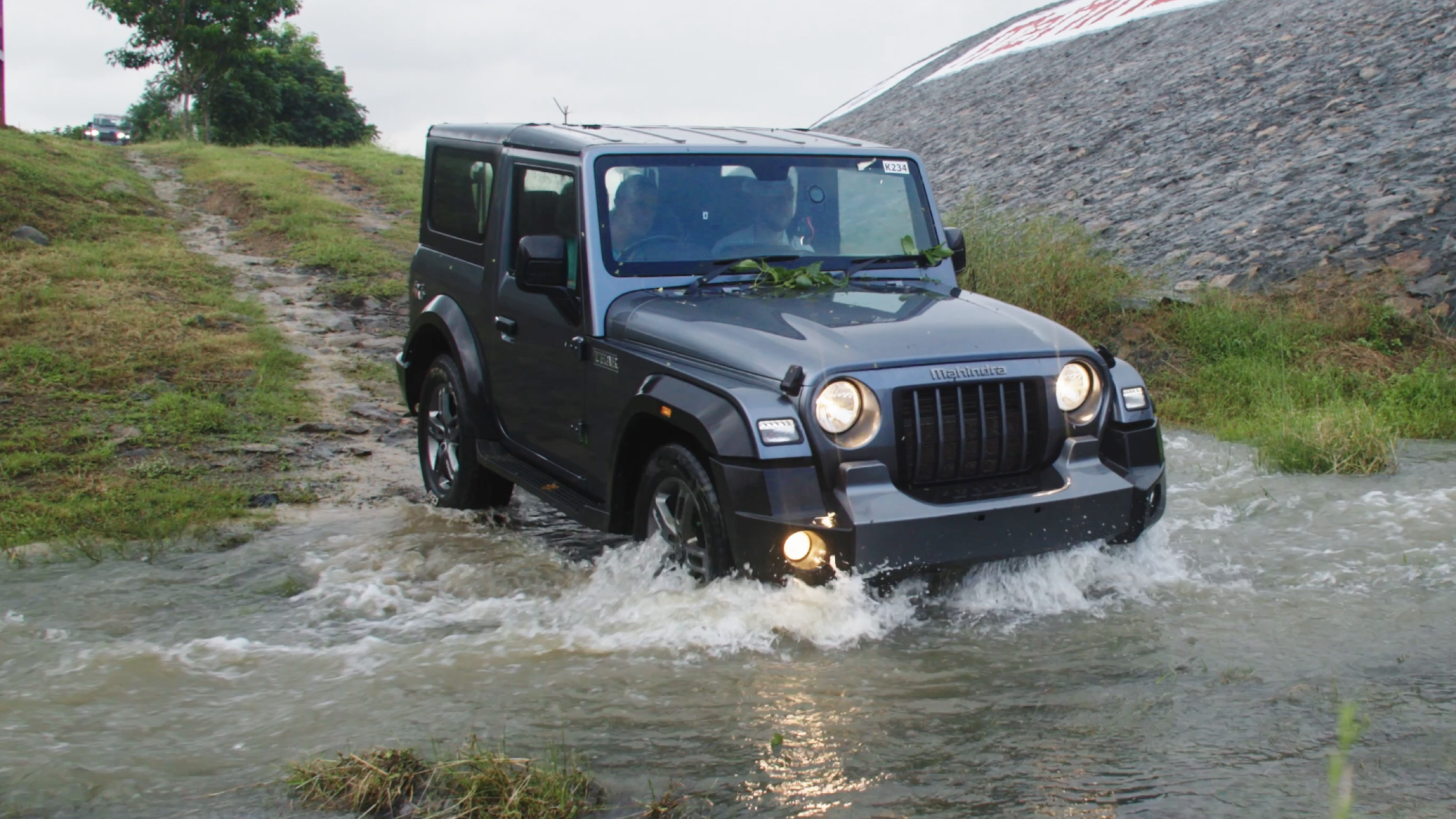
Things we like
- Serious off-road capability
- Tough guy looks
- Very affordable in its home market
Not so much
- Not going to be sold in Australia
- Petrol is a bit peaky off-road
- Something of an uncomfortable experience
You will never see one of these on Australian roads. I mean, you might see 4x4s that look very similar… but sadly, the internal-combustion Mahindra Thar is not for Australia.
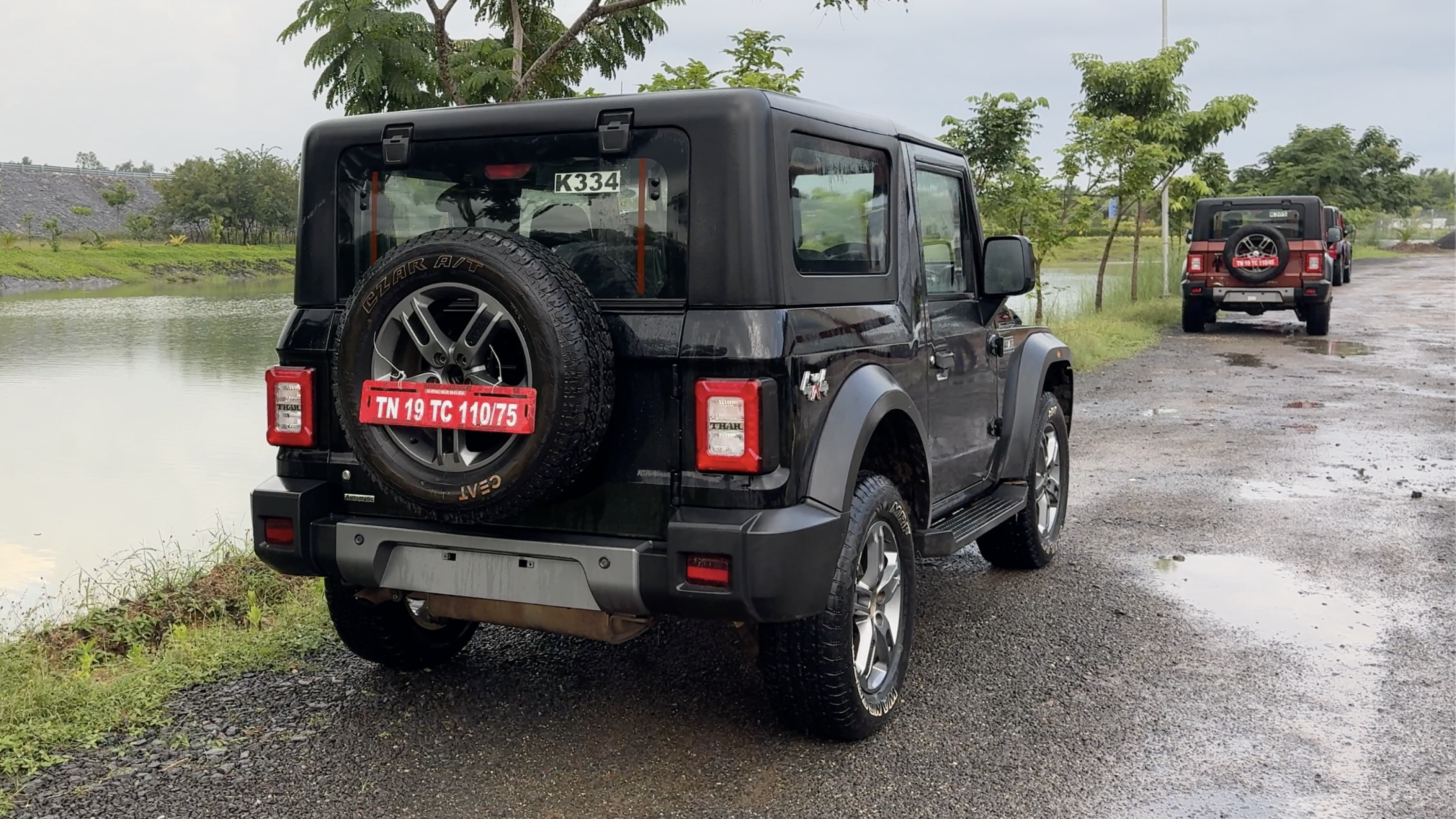
JUMP AHEAD
- What is the Mahindra Thar?
- Looks cool – but is it really capable?
- Inside
- What’s it like to drive off-road?
- Should we be sad it won’t come to Australia?
What is the Mahindra Thar?
It might look… familiar… but there are indeed familial links between Mahindra and Willys that stretch back to 1949.
The Thar – named after the area also known as ‘The Great Indian Desert’ – first launched in 2010. The current, modern-day Thar (BS6) launched in 2020 as an affordable purpose-built 4×4 celebrating Mahindra’s 75th anniversary.
It’s a bargain, too – pricing starts at the equivalent of AUD $20,800 in its home market of India. There are 4×2 models, petrol or diesel choices, and manual or auto versions.
And if you thought the wait times for Toyotas were bad – some versions of the Thar are said to have a “60-month” delay. The brand is only building a few thousand per month.
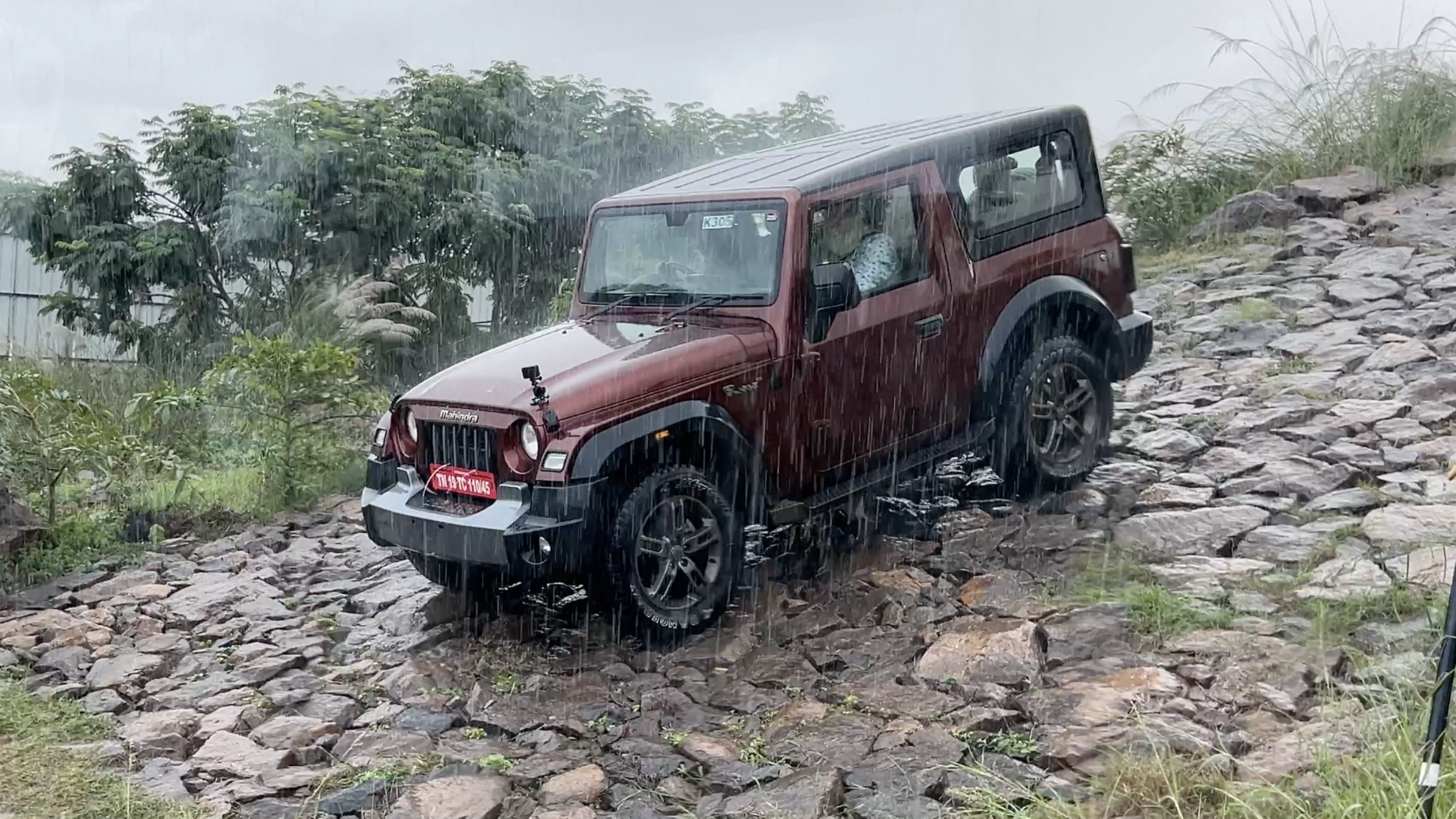
Looks cool, but is it capable?
The Thar is built on a body-on-frame chassis said to “handle absolutely any terrain without breaking a sweat”, with an independent double-wishbone front and a live-axle multi-link rear suspension layout.
Clearance is good at up to 226mm, while wading depth is 625mm (but Mahindra’s off-road course includes up to 900mm deep patches!). The approach (42°), break-over (27°) and departure (37°) angles are exceptional.
As for dimensions, the three-door Thar is the exact same length as the new Jimny XL five-door, at 3985mm, with a 2450mm wheelbase. It’s pretty broad-shouldered, at up to 1855mm wide (Jimny: 1645), and can stand as tall as 1920mm (Jimny: 1720).
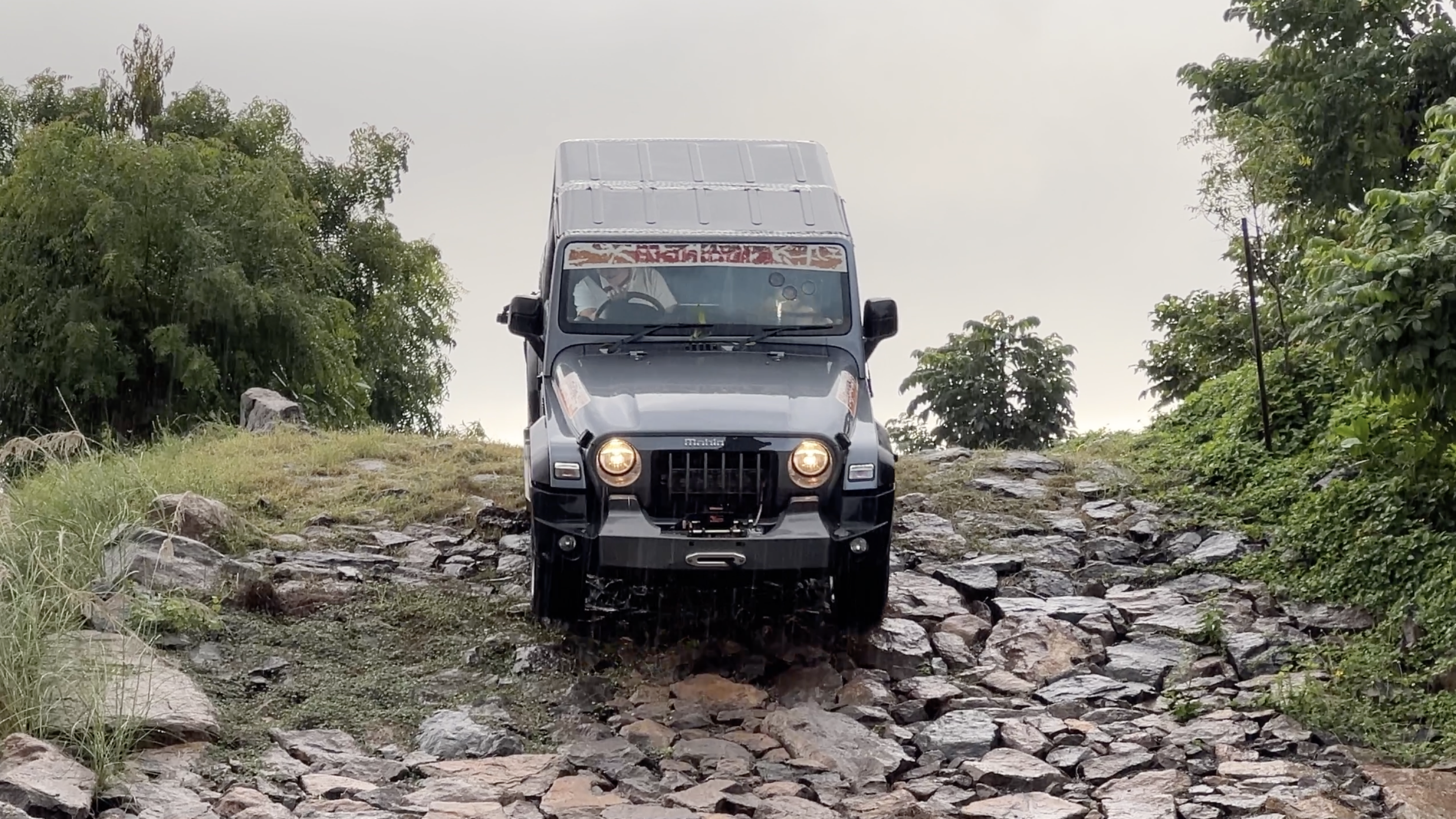
The hard-top, three-door pre-production model tested here was a petrol-turbo take on the theme, with a six-speed auto, four-wheel drive with a low-range transfer case, and a pair of electronic brake-locking differentials.
High-grade diesel versions are available with an optional mechanical locking diff, and all grades have hill-hold and hill-descent control.
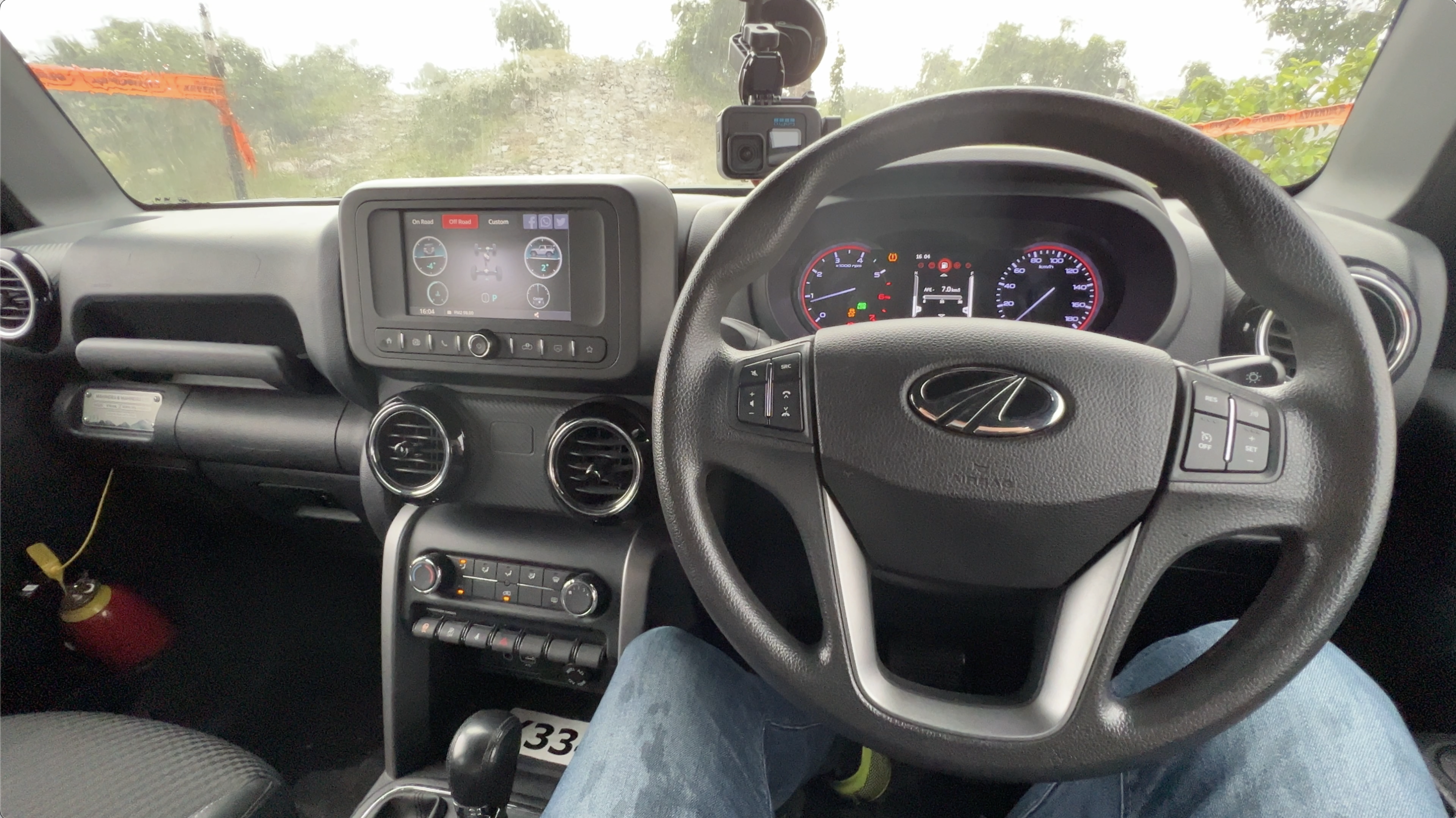
Inside
It’s not quiet, it’s not all that comfortable due to some compromised ergonomics, and while it’s certainly a big step up from older Mahindra models, the Thar is best described as basic.
That’s completely fine, though, because the cabin treatments aren’t why you buy a vehicle like this. And hey, the seats look good and offer the sort of support you need when you’re being thrown around in the cabin.
The three-door model has four seats (including ISOFIX points in the back), overhead speakers so they don’t drown when you’re fording rivers, a touchscreen media system with an Adventure Statistics page to show your off-road angles, and tyre pressure monitoring is a spec-dependent inclusion.
The Thar has a four-star Global NCAP rating, but this is not equivalent to an ANCAP score. It may have dual airbags, but there are no side impact ‘bags, and stability control isn’t fitted to all grades.
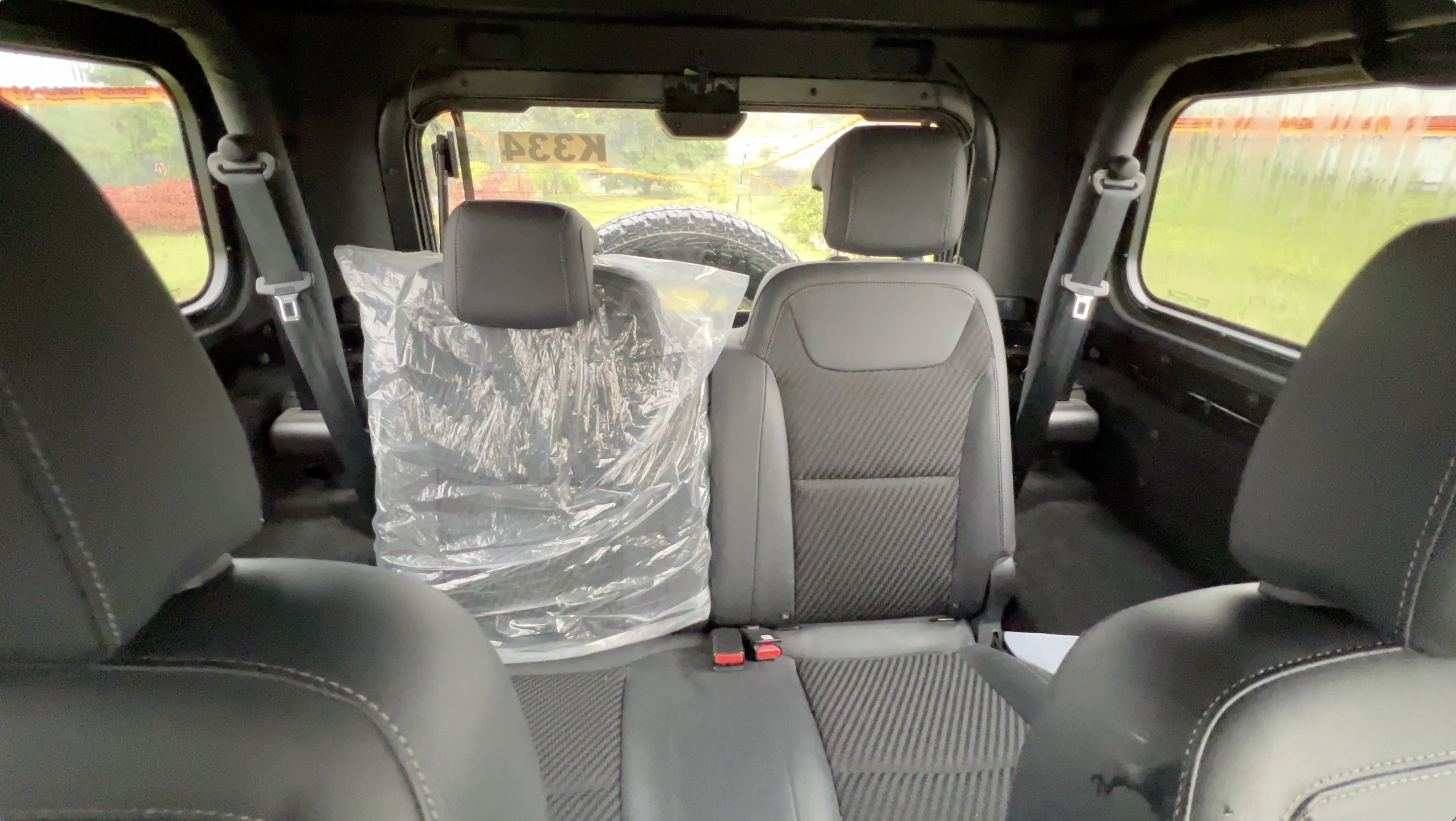
What’s it like to drive off-road?
The petrol wouldn’t be my pick for the Thar
I’d already driven the impressive Scorpio (Scorpio-N) in dry conditions over the extensive mixed-terrain test tracks. Hours later, with less than an hour before we had to leave for our flight home, we finally got out on the trails – and the rain was Thar-rential. (Sorry.)
First off, the petrol wouldn’t be my pick for the Thar – not when you can get the far smoother diesel from the Scorpio-N. Mahindra markets the petrol mill as a “rev-happy” engine, and it is a peaky operator, making it hard to maintain the correct amount of throttle pressure in treacherous situations.
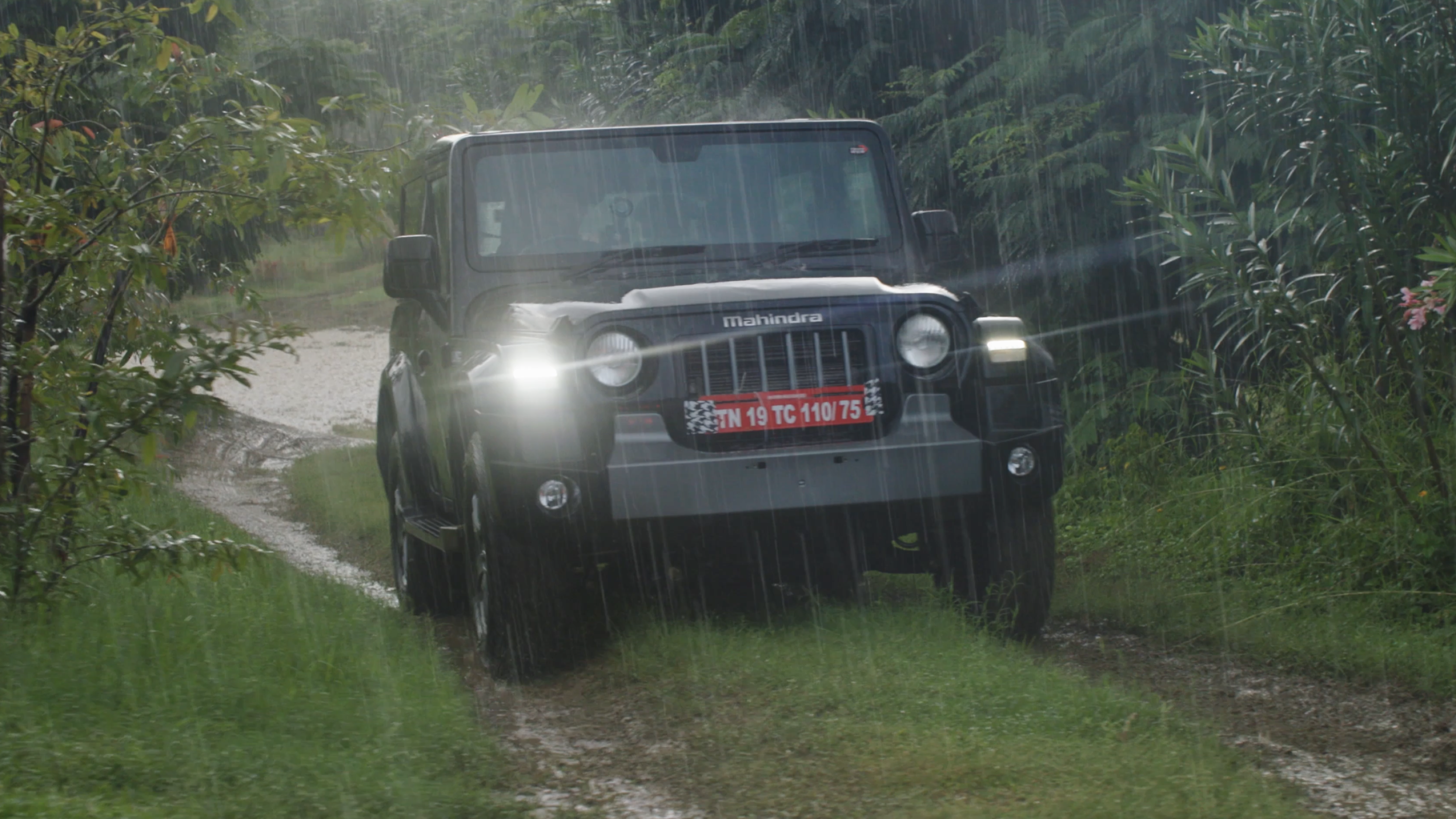
The pedal feel for the brakes is also on the airy side, which doesn’t inspire confidence when you’re sliding down a rocky hillside… as was part of the test track.
I also bumped down a series of stairs, too, and the brakes made things a bit more nerve-wracking.
Steering is a hydraulic system – you have more inherent feel as a result, but it takes a fair bit of arm-twirling in order to change directions at lower speeds.
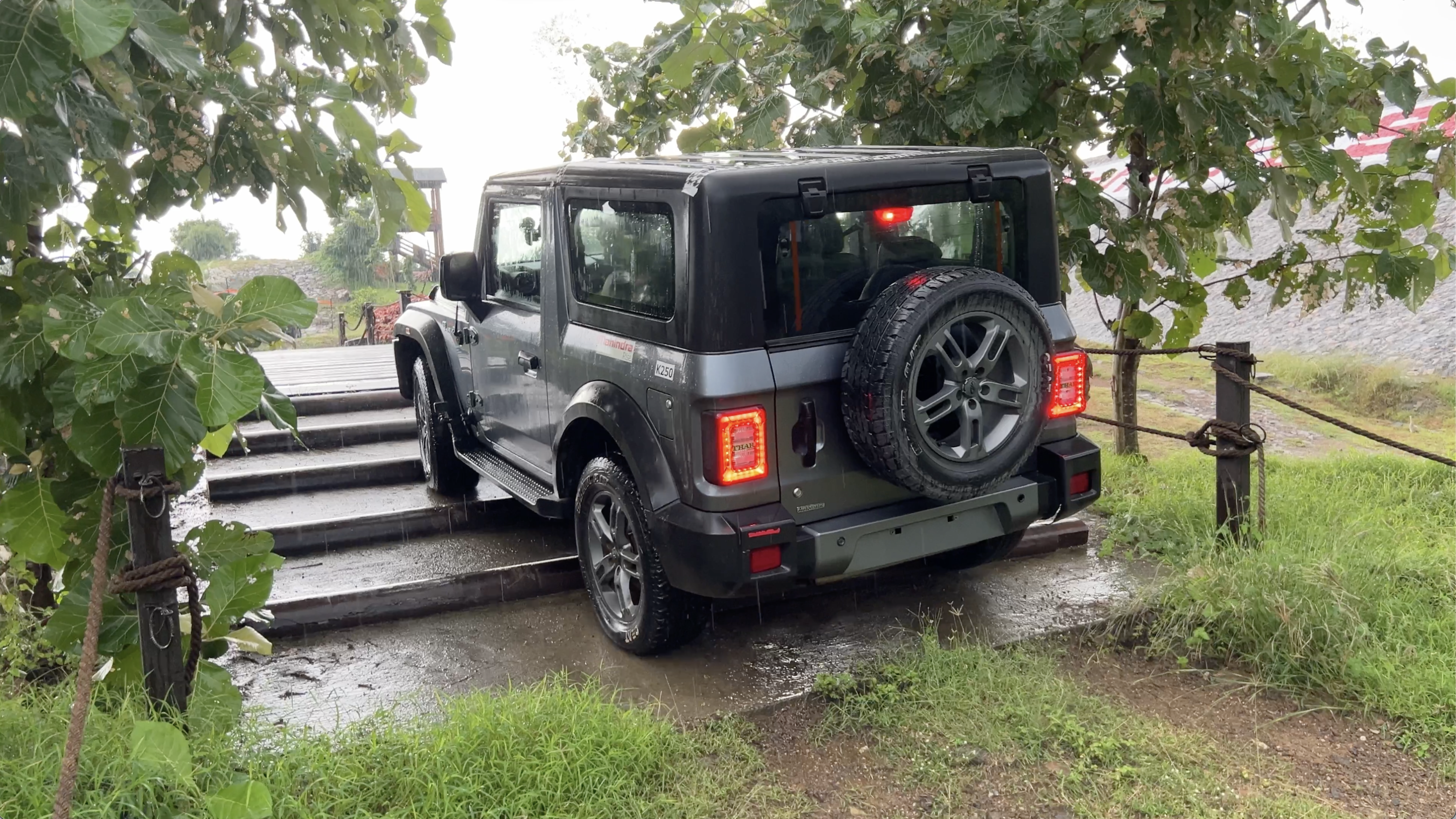
The highlight here, though, is the suspension.
There’s excellent articulation here, and if you appreciate a connected feel to the surface below, this setup really helps you find your way by letting you know where you’re placing your tyres. It’s a pretty talkative chassis in that way. One thing that would make it an even more compelling option off-road, however, would be a ‘real’ diff lock system.
The Thar does have brake-locking e-diff setups, but at times you can find that they won’t lock until you’re already slipping beyond your comfort-zone.
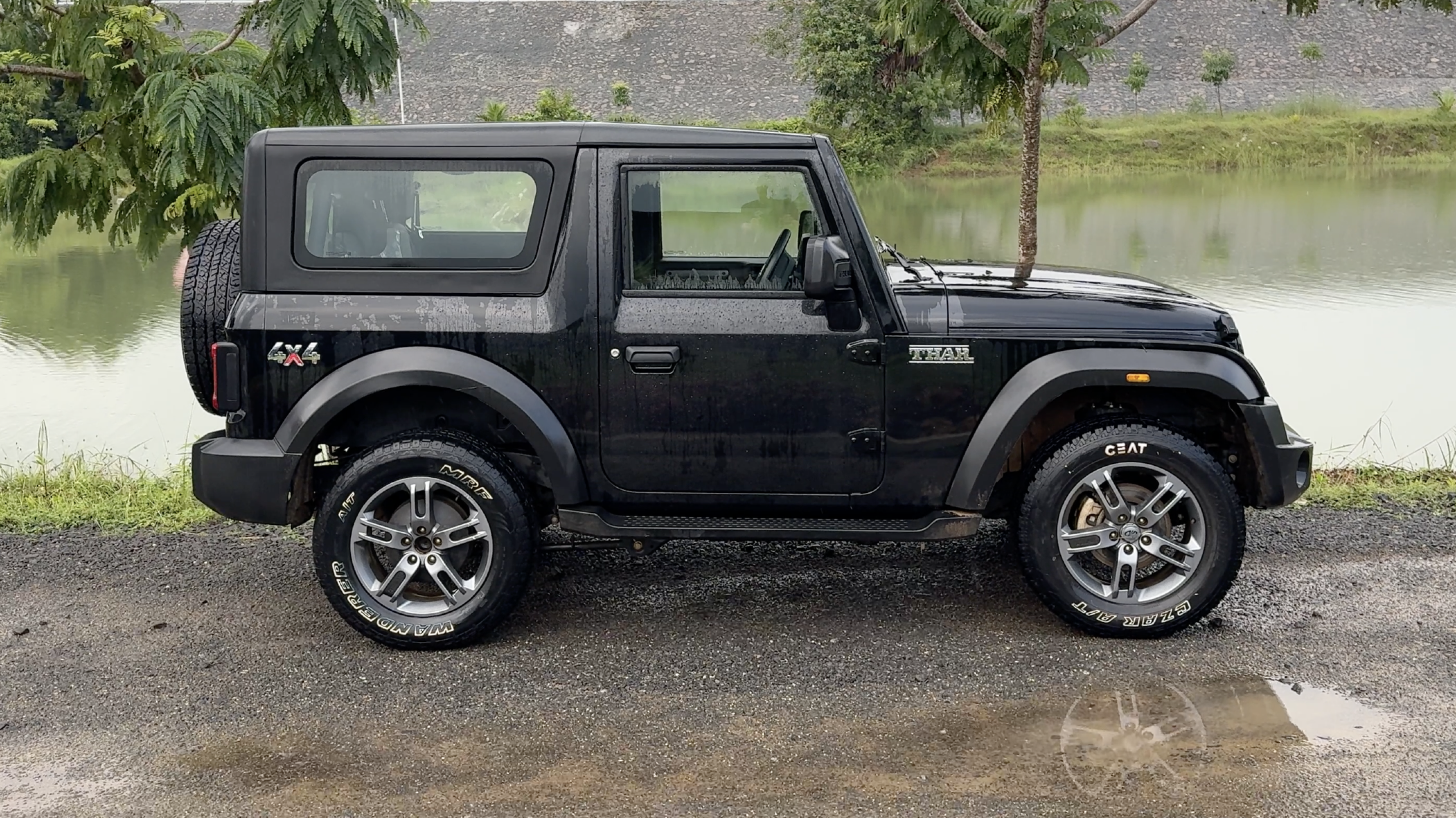
Should we be miffed it won’t come to Australia?
You bet. This would be a fantastic alternative to a Jimny – or the other J badge – but it won’t come here.
Not as a petrol or diesel, anyway. But there is a five-door version on its way, and Mahindra has told us they’re monitoring our market for the introduction of a potential production version of the Thar.E electric five-door. Fingers crossed.
| 2024 Mahindra Thar specifications | |
|---|---|
| Powertrain | 2.0-litre turbo-petrol 4-cyl |
| Max power | 112kW |
| Max torque | 300Nm |
| Drivetrain | Four-wheel drive |
| Price | from INR 1,403,500 (AUD: $25,260) |
Things we like
- Serious off-road capability
- Tough guy looks
- Very affordable in its home market
Not so much
- Not going to be sold in Australia
- Petrol is a bit peaky off-road
- Something of an uncomfortable experience



